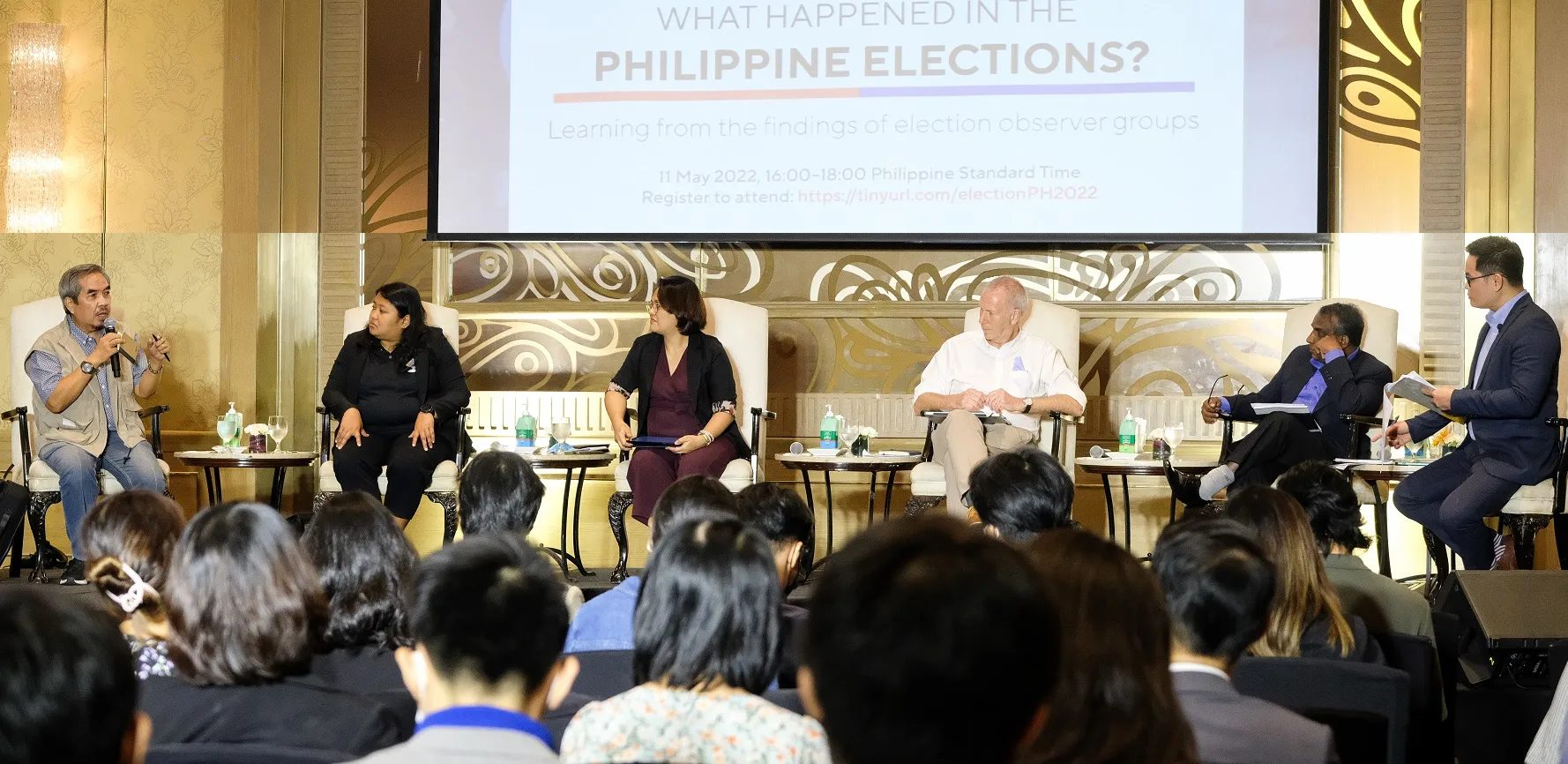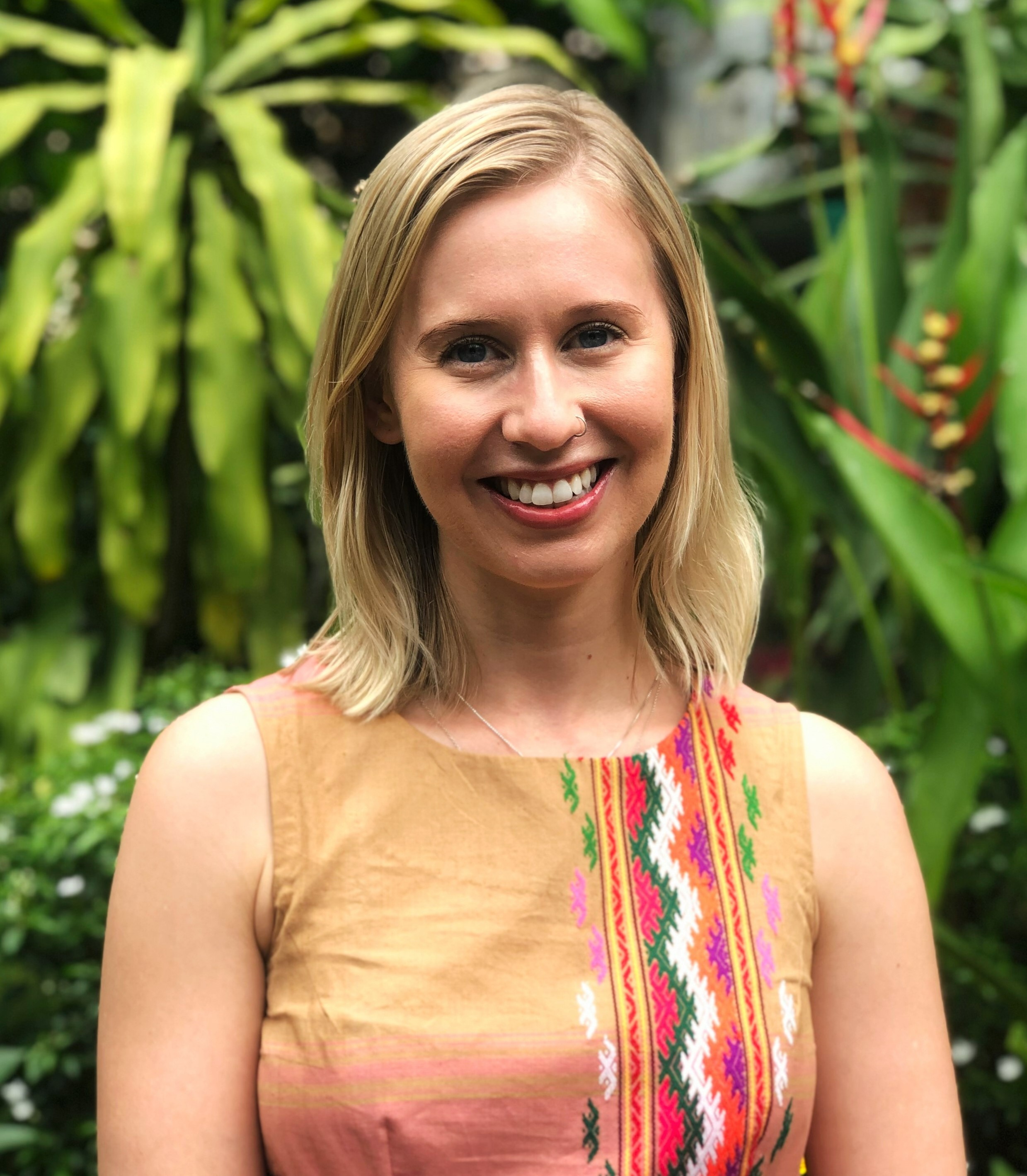
Against the backdrop of the pandemic and an adversarial campaigning period, counting is almost complete and indicates a likely return for the Marcos political dynasty in the Philippines with the election of Ferdinand Marcos Jr. His father, overthrown in a 1986 revolution, is remembered as a dictatorial ruler accused of corruption, kleptocracy and brutality.
In the wake of the election, International IDEA and the University of the Philippines Department of Political Science hosted a two-hour panel on 11 May 2022, featuring international and local electoral observers who weighed in on accusations of disinformation, voting machine malfunctions, and how the Philippines can create an empowered constituency that demands cleaner elections in the future.
Speaking positively of his initial observations, Peter Wardle, team leader of The Carter Center’s mission to the Philippines, reported “very widespread levels of participation” in the nationwide electoral process and noted it was “reassuring” to see civil society providing checks on the automated voting system, known as VCMs.
Kontra Daya Convenor Malou Turalde-Jarabe struck a different tone, noting that the election had been highly contentious and said it was “difficult to be confident” before detailing her organization’s documentation of more than 4,000 reports of “fraud and election related violence”, including a significant number of machine voting failures. These reports, she said, cast doubt on whether the machines were reliable enough for future elections.
Legal Network for Truthful Elections (LENTE) executive director Ona Caritos said the results were “credible…but with reservations”, highlighting that her organization is still undergoing manual vote checking in some areas to cross reference with the official results.
Lito Averia, Systems Group Head at the National Citizens’ Movement for Free Elections (NAMFREL), told the audience that “credibility is a perception” and that the real or perceived issues noted throughout the election period impact the credibility of the entire system.
All panellists were united in calling for more transparency, noting that the Commission on Elections, known as Comelec, faces an uphill battle as voters report low levels of trust in the body, combined with disinformation campaigns and opaque campaign financing regulations.
Addressing the “elephant in the room”, moderator Christian V. Esguerra asked panellists for their views on the role of disinformation in this election. Ona Caritos was clear, “We have a big problem with misinformation and disinformation. To answer your question about how big of a problem this is? We are in the Marvel cinematic universe. People are in different universes—one sector of the population is one universe, and another [segment] is in another universe.” Acknowledging the complexity of disinformation in political campaigns, she called for creative solutions from the government and gave Comelec credit for swiftly addressing disinformation that overseas voters would be disadvantaged.
The panellists, and the audience members who asked questions, were aligned in their desire to see future elections in the Philippines and the region trend further toward transparency. Rohana Hettiarachchi, Secretary General of the Asian Network for Free Elections, said that in pursuit of “clean elections” all stakeholders, including local civil society, observers, media, and voters must be educated in the entire process–not just the election campaign. Underscoring the critical importance of a truly representative democracy, he said, “I humbly request to my colleagues, we have to start that education process immediately.”
Watch the panel discussion below.




